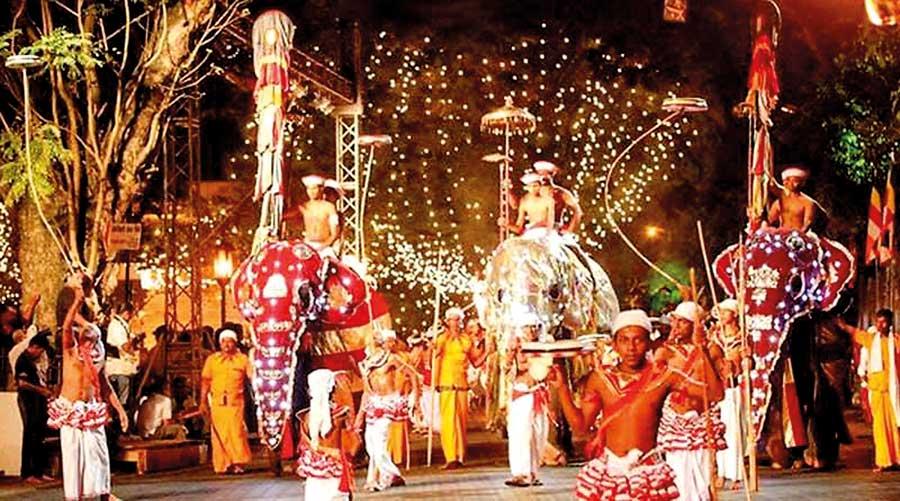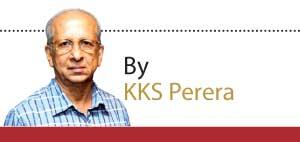Reply To:
Name - Reply Comment
Last Updated : 2024-05-25 13:01:00

Blaring loud speakers in almost all religious ceremonies are quite common in Sri Lanka. But the author rightly says the noise pollution by these could cause serious health hazard among schoolchildren, sick and elders
In a civilized society in the name of religion events which disturb old or infirm persons, students, or children having their sleep in the early hours cannot be permitted. Old and infirm are entitled to quietness. Aged and sick with psychic disturbances need peace
Living in a hamlet surrounded by five temples, a catholic church and a mosque, I am inundated with multi-cultural, multi-ethnic, multi-religious mélange of highly amplified loudspeaker sounds, that include Buddhist Sutta chanting in Pali from five of our temples, Sinhala Christian hymns from the church, and the five times call to prayer in Arabic from the mosque [the least agonizing]. They take turns in providing the residents with free non-stop ‘entertainment’ through earsplitting dissonant noise.
sounds, that include Buddhist Sutta chanting in Pali from five of our temples, Sinhala Christian hymns from the church, and the five times call to prayer in Arabic from the mosque [the least agonizing]. They take turns in providing the residents with free non-stop ‘entertainment’ through earsplitting dissonant noise.
Buddhist temples have taken over the ‘meritorious task’ following the church feast, with Vas and Katina rituals taking place in October. The monks being unable perform ‘pindapatha’ [a practice now redundant]. On the last day of Vas, hundreds of devotees, travel miles in procession preceded by elephants hired at an exorbitant cost, with dancers, fire-ball acrobats, drums, horns, whip crackers, fireworks, and loudspeaker-mounted vehicles transmitting recorded stanzas. The extremely noisy extravagant processions commences in the wee hours of morning from a dayaka’s house, and usually take a longer route, polluting the entire course to reach the temple, which in most instances located only a stone’s throw away from the place of origin.
Discipline in the Buddhist context embraces observing one’s own behaviour so that we do not harm others. A few years ago, I happened to be at a Katina in a temple at Dandenom, in Melbourne. The simple procession moved peacefully with around 500 flag-carrying Lankan Buddhists joined by a few Aussies, all chanting Sadhu, Sadhu. There were no hired drummers, fireball acrobats, dancers, horns, whip-crackers and lighting of crackers. A few schoolchildren were riding bicycles with flower decorations added colour. The procession started around 10.00 am and reached the temple in half-an-hour.
Ven. Piyadassi Thera of Vajiraramaya, says, “Benefit could be derived only, by listening intelligently and confidently to pirith sayings because of the power of concentration that comes into being through attending whole-heartedly to the truth of the sayings. Blaring forth the sacred suttas and disturbing the stillness of the environment, forcing it on ears of persons who do not invite such chant is the anti-thesis of the Buddha’s teaching.” - Buddha’s Ancient Path: pp 17.
A month ago, our church had their feast with round the clock prayer sessions, polluting the area with continuous loud noise blared for hours and days from loudspeakers for one whole week. It was none other than, St. Mother Teresa who wrote in her book titled, –‘Silence’: “We cannot find God in noise and agitation. Nature, trees, flowers and grass grow in silence, the stars, sun and moon move in silence. Silence our eyes, silence our ears, silence our mouths, and silence our minds, in the silence of hearts God will speak.”
In FR case -38/2005 : Ashik Vs Bandula and others: 2007-Before- The bench of Sarath N. Silva, CJ and two other Justices , affirmed strict conditions and directions for issuing permits for amplification of noise, under section 80 (1) [Police Ordinance]. Delivering the judgement, CJ stated, “No religion recommends that prayers should be performed by troubling the peace of others nor does it speak that they should be through amplifiers or beating of drums…”
Prophet Muhammad ordered his treasured companion Omar (rali) to lower his vocal sound, when he recited sections from the Quran, in congregational prayer. A leading authority describes unwanted sound as “a potential hazard to health and communication dumped into the environment regardless of the adverse effect it may have on unwilling ears.”
Beating of drums made of skins, especially slaughtered for the purpose are used in a thing called ‘Shabda Puja’, a term created since the practice was introduced with the arrival of Bo sapling and Sanghamitta theri. In a civilized society in the name of religion events which disturb old or infirm persons, students, or children having their sleep in the early hours cannot be permitted. Old and infirm are entitled to quietness. Aged and sick with psychic disturbances need peace.
In several sermons it is related that when ascetics of other cults saw the Buddha visiting them, they resolve: “Be quiet, don’t make a sound! It is the Gautama who is coming. He is a lover of appasaddá, [quietness/ silence].
According to ENT consultants victims of noise pollution show signs like hypertension, irritability, stress, lack of sleep, and complain of ringing noises in the ear. Loud music on public parks after 10.00 pm is a serious offence and prohibited in developed countries. A few years ago The Central Environment Authority (CEA) was working on a draft to set standards for permitted noise levels, which needs to be revived on priority.
Rains Retreat is a ritual that predates Buddhism and had been practiced by ascetics in India, at a time when there were no proper temples or monasteries. The Buddha and monks, travelled by foot long distances, teaching the Dhamma, receiving pindapatha and sleeping under trees. They did this persistently for major parts of the year but monsoon rains prevented which lasted about three to four months in Northern parts of Jambuddvipa. Buddha realizing monks needing a rest, and also walking during the time may harm the crops and they trample on worms that come out in the rain. Then they did not enjoy the comforts of Air-conditioned abodes or luxury vehicles, robes of valuable ‘Thai’ texture. Buddha agreed on a Rainy Retreat or Vas.
Some monks who were rushing to join the Buddha for the Vas season were prevented from doing so by the deluge and they had to camp in worst conditions discussing the Dhamma; and when rain ceased, they hurried to Jetavanarama in their mud splattered robes. The Buddha seeing the sad state gave them some clothe to sew a robe and offer it to the neediest. They used a frame called Katina to cut and stitch the robe.
Albeit the most destitute poor temples in the remote villages, our Venerable Monks have enough robes, some displaying a variety of luxurious material. They never walk barefoot even short distances. The affluent ones, are in chauffeur-driven V-8s and limousines. Why bury in the past? Buddha was specific when he said clearly, what matters is the intent.
As reported in the Daily Mirror [24/10/2022] a 17-year old child who was performing with fire acrobats (Gini Bola) at a Katina Perahera had died when he had come into contact with an unprotected electric wire at Dodangoda in Kalutara. A “system change” reducing rituals, pujas has become an essential feature. Rituals, one can argue, are a cultural requirements, so are the vehicles, but for ensuring survival of the sasana, the gradual shrinking of religion should be substituted by increased training in the Dhamma. This goes to show that, with a dream and a longing for innovation, changes to ceremonies can be made, to make them valuable and beneficial to all.
The writer can be contacted at – kksperera1@gmail.com
Tissa Fernando Monday, 31 October 2022 08:34 AM
Sounds like an evangelist statement. Sound in those festivals have been used fir centuries and hardly anyone had these conditions the author is talking about.
Lalindra Monday, 31 October 2022 04:06 PM
It's been an eternal problem but not openly discussed because of religious compulsion. Nevertheless it has been a recurring problem to most peace loving citizens.
Sokrates Monday, 31 October 2022 12:16 PM
The Buddha was living at Savatthi. At that time the group of six bhikkhus was going among the houses making a loud, great sound. The Buddha came to hear about it, called the monks, and said: “Foolish men, how can you go among the houses making a loud, great sound?!” And he laid down the training rule: “I shall go quietly in inhabited areas, this is a training to be done.”
Man Monday, 31 October 2022 01:01 PM
Why not the author suggest to include in the referendum that the president desires to have, with his system change, to be implemented?
Kamissa Wednesday, 02 November 2022 11:03 PM
Ignores the root causes, such as religious tensions and unupmanship that is not taught in any of the aforementioned religions, and systemic failure and lack of accountability of allowing a state of disrepair of having a Live Wire cable on the road and not checking for safety before a profession. Ignorant and half-thought article.

Add comment
Comments will be edited (grammar, spelling and slang) and authorized at the discretion of Daily Mirror online. The website also has the right not to publish selected comments.
Reply To:
Name - Reply Comment
For a long time, accusations have been made against Urban Development and Hou
The state-run loss-making State Mortgage & Investment Bank (SMIB) has reveale
US authorities are currently reviewing the manifest of every cargo aboard MV
On March 26, a couple arriving from Thailand was arrested with 88 live animal